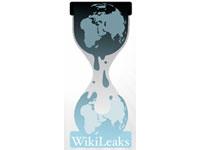BOB GARFIELD: Wikileaks is an online clearinghouse for secrets. Launched in December, 2006, the website publishes leaked documents from anonymous whistleblowers across the globe. The site tends to grab headlines for its most salacious leaks. For example, they posted the contents of Sarah Palin’s hacked email account during the presidential campaign, and this week it posted the personal information of 51,000 supporters of ex-Senator Norm Coleman, hacked from his campaign’s website. The site’s investigations editor, Julian Assange, says that the real work of the site mostly goes unnoticed. For instance, it recently uncovered documents that detailed Kenyan political assassinations. But we wondered about the broader implications of a site that publishes sensitive information with next to no editorial discretion. I asked Julian if hypothetically he would publish information sent to his website that could lead to the deaths of innocents, such as, for instance, how to release anthrax into a town’s water supply. JULIAN ASSANGE: Yes, even if there is a possibility that it would lead to loss of life. It’s hard to imagine a circumstance where we would get a document and us not publishing it would be helpful. If they were ill motivated, then they could send that in private to terrorist groups, to neo-Nazi organizations, and those organizations could then develop their plans out of the sunlight. And that’s the greatest harm. BOB GARFIELD: In arranging this interview, you declined to provide your telephone number to our producers, or your whereabouts, for that matter. JULIAN ASSANGE: We are a bit cagey about some of our communications. The reason is that we deal with intelligence forces every day. If too much is known about the journalists that are working with us, their telephone can be tapped and monitored, and forces that are communicating with them can be monitored. The results of a slip-up on our behalf could be fatal to some of the people that we work with, so we're very cautious to make sure that people can't get at our sources by obtaining our telecommunications records. BOB GARFIELD: Not long ago you were in an interesting [LAUGHS] situation. You inadvertently – your organization inadvertently sent to all solicitees the entire list of the people you were soliciting. You failed to put it in the BCC field, and as a consequence, everybody who got the email asking for money knew who everybody else was who had been solicited. Someone sends the list [LAUGHS] back to you and challenges you, I guess, in effect, to post on Wikileaks your own inadvertent leak, and you did so. But I dare say, Julian, that if someone had gotten a hold of all of your sources and sent it to Wikileaks, you would not post it for fear of the imprisonment or murder of some of your confidential sources. JULIAN ASSANGE: We make sure that we destroy any information about our sources as soon as we can. But supposing some of those journalists, their telephone records were dumped. And, yes, if it’s a black and white case of someone definitely being killed, then we will find a way to sit on the information until it’s no longer of such a harmful consequence. But, fortunately, we have never come to the point where we've had to really consider is someone very likely to be harmed by what we're releasing. BOB GARFIELD: Clearly there are circumstances when you do draw the line at the release of certain material. The one that we talked about was when your own sources are at risk of arrest or physical violence. Doesn't that make you want to pull back and look at the general process you consider so inviolable at the moment? JULIAN ASSANGE: There is argument for notification of people before you release material, and we have done that where we think there is a potential for personal harm that is reasonable, not fantasy. I don't think there is an argument for other forms of censorship. BOB GARFIELD: Can I just question your use of the word “censorship” because that is something that governments impose on third parties. When the third parties themselves impose it, you could call it self-censorship, or you could just call it judgment. JULIAN ASSANGE: Wikileaks is not a normal news organization. We are a public service to whistleblowers who are trying to get their messages out. Our judgment would be a form of censorship of those whistleblowers. BOB GARFIELD: Investigative reporters and news organizations have feasted on the documents provided by whistleblowers since time immemorial, but when information is particularly sensitive, the news organizations typically will give the government an opportunity to persuade the news organization that, for whatever reason, it is extremely dangerous to release some or all of what has been leaked. Why is that such a bad idea? JULIAN ASSANGE: Well, CBS followed that practice for eight months, concealing Abu Ghraib, until it was scooped by The New Yorker. So that kind of practice is not something that journalism should be proud of, whatsoever. You have to think where your loyalties are. And for a news organization, that primary loyalty should be to its readers or it should be to its sources. Our primary loyalty is to our sources, secondary loyalty to our readers. To me it’s kind of amazing. I mean, you either believe in a free press or you don't. And if you do, then people should act like it. And we act like it, because we do. BOB GARFIELD: Well, Julian, thank you so much. JULIAN ASSANGE: You’re welcome. BOB GARFIELD: Julian Assange is the investigations editor for Wikileaks.
